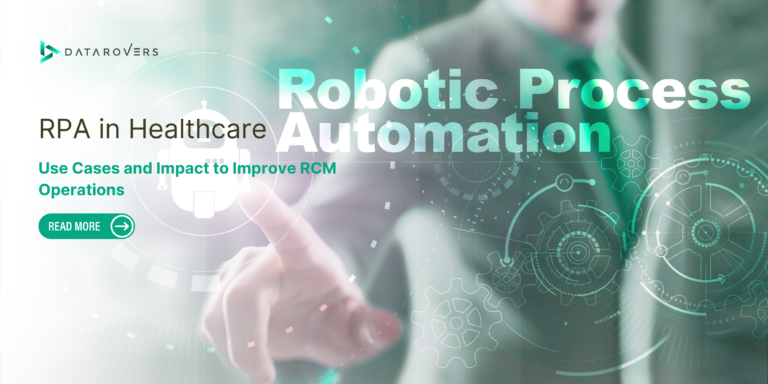Overview
Managing claim denials has long been a critical challenge for healthcare providers, affecting revenue flow and operational efficiency. Various simple to complex errors disrupt claim denial management, often involving unstructured documents lacking sufficient insights. This leads to manual processing and communication between medical facilities and insurance companies.
A recent HIMSS Analytics survey revealed that 31% of healthcare providers still rely on manual processes for claims denial management, indicating a significant need for automated solutions. Traditional, time-consuming, and reactive methods result in inefficiencies and potential revenue losses.
However, technological advancements, particularly Machine Learning (ML) and Predictive Analytics, are revolutionizing medical claims processes. They serve as powerful tools for improving operations and reshaping the approach to denial management in RCM. By predicting and refining denial patterns, reducing human errors, decreasing claim denials, and expediting payment processes, ML and Predictive Analytics offer promising solutions for more efficient and effective denial management.
In this blog, we will analyze how predictive analytics and Machine learning can be fruitful for efficient denial management, their practical implementation in the healthcare system, and the outcomes.
Let’s explore it together and get full-fledged knowledge about innovation that can help you catch up with your ideal revenue growth.
Impact of Claim Denials on Healthcare Providers
Denied claims lead to financial losses, strain provider-payor relationships, and compromise patient care. Providers must address denial rates proactively to ensure a healthy revenue cycle.
The Need for Advanced Solutions in Claim Denial Management
Traditional approaches to claim denial management are often reactive and time-consuming. By leveraging predictive analytics and machine learning, providers can predict denials, take proactive measures, and streamline resolution processes.
Overview of Predictive Analytics and Machine Learning
Predictive analytics involves using historical data to forecast future events. Machine learning algorithms can identify patterns and make data-driven predictions. They offer a powerful toolset for efficiently predicting and resolving claim denials.
Implementing Predictive Analytics in Claim Denial Management
Data Collection and Preprocessing
Quality data is the backbone of predictive analytics. Providers must collect relevant data from various sources and clean and preprocess it to ensure accuracy and reliability.
Building Predictive Models for Claim Denial Prediction
By training predictive models on historical claim data, providers can identify patterns and factors contributing to claim denials. These models can help predict the likelihood of future denials and prioritize cases accordingly.
Real-time Monitoring and Continuous Improvement
Real-time denial pattern monitoring allows providers to continuously adapt and improve their predictive models. By analyzing trends and adjusting algorithms, providers can enhance the accuracy and effectiveness of their denial management strategies.
Leveraging Machine Learning for Efficient Claim Denial Resolution
Automated Prioritization of Denials
Machine learning algorithms can automatically prioritize denials based on factors such as denial code, payor history, and patient information. This automation streamlines the resolution process and ensures efficient resource allocation.
Root Cause Analysis Using ML Algorithms
Machine learning algorithms can analyze data patterns to identify the root causes of denials. By understanding these reasons, providers can take targeted actions to prevent recurrence.
Personalized Action Recommendations for Denial Management
Machine learning can provide personalized recommendations for denial resolution based on historical data and successful strategies. This tailored approach empowers providers to take practical actions and improve denial outcomes.
Benefits of Predictive Analytics and ML in Claim Denial Management
Improved Revenue Cycle Management and Cash Flow
Predictive analytics and machine learning can significantly reduce denial rates, leading to improved revenue cycle management and enhanced cash flow for healthcare providers.
Enhanced Operational Efficiency and Reduced Administrative Costs
Predictive analytics and ML can streamline operations and reduce administrative overheads by automating denial management processes and effectively prioritizing tasks.
Better Provider-Payer Relationships and Patient Satisfaction
Efficient denial management through predictive analytics and machine learning can improve payer relationships, leading to faster claim approvals and improved patient satisfaction.
Key takeaways for Providers Looking to Enhance their Denial Management Processes
Embrace predictive analytics and machine learning to manage claim denials proactively.
To overcome implementation challenges, focus on data quality, staff training, and compliance.
Monitor denial patterns, continuously improve predictive models, and prioritize actions for optimal results
Data Quality and Integration Issues
Ensuring data accuracy and integrating data from disparate sources can be challenging when implementing predictive analytics. Providers must invest in data quality management processes and robust integration tools.
Staff Training and Change Management
Training staff to use predictive analytics tools effectively and managing organizational changes associated with adopting new technologies are essential for successful implementation.
Regulatory Compliance and Data Security Concerns
Providers must adhere to regulatory data privacy and security requirements when using predictive analytics and machine learning. Implementing robust security measures and compliance protocols is crucial.
Insights from Leading Healthcare Institutions and Research
Enhancing Denial Management with Real-time Monitoring
Urgent Care, located in the USA, reported the effectiveness of real-time monitoring in denial management during an interview with RevCycle Intelligence, demonstrating the value of real-time analytics in denial resolution. After gaining real-time access to claim denial management data, Urgent Care Now improved A/R days by 18 percent and collections by 30 percent.
Innovative Solutions For Denial Management (Survey Results)
According to a Deloitte survey, 95% of medical payors are intensifying their digital transformation initiatives, focusing particularly on claims management. This change is essential for enhancing data accuracy and establishing “clean claims” in an industry where less than 10% of claims undergo straight-through processing.
How DataRovers Can Help?
Proactive claim denial management through predictive analytics and machine learning is the future of efficient revenue cycle management in healthcare. By leveraging these advanced technologies, DataRovers ideal denial solution, Denials 360 providers can optimize their denial resolution processes, enhance operational efficiency, and improve relationships with payors and patients.
1. Predictive Accuracy
DataRovers predicts denials before they happen, empowering proactive action through predictive analytics and a machine learning toolset.
2. Denials Segmentation
Smart prioritization and analysis streamline resolution efforts by segmenting soft and hard denials for targeted intervention.
3. 360-degree Visualization
Gain comprehensive insights into denial trends and patterns, facilitating holistic strategies for resolution and prevention.
4. Streamlined Efficiency
Optimize revenue flow and reduce administrative costs with DataRovers streamlined processes.
5. Payor Partnership
Builds stronger relationships with payors through faster approvals and increased revenue realization.
6. Trustworthy Compliance
Ensures data security and compliance, safeguarding sensitive information seamlessly.
Transform your denial management process with Denials 360 insights and detailed resolutions. Are you ready to partner with datarovers that are ready to proclaim one of the top technology companies Contact Us




